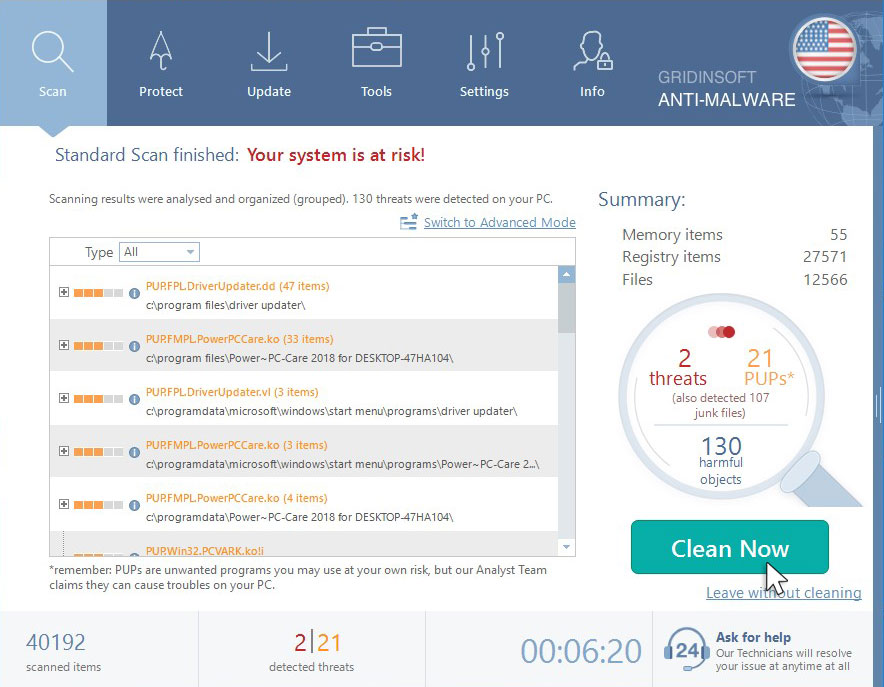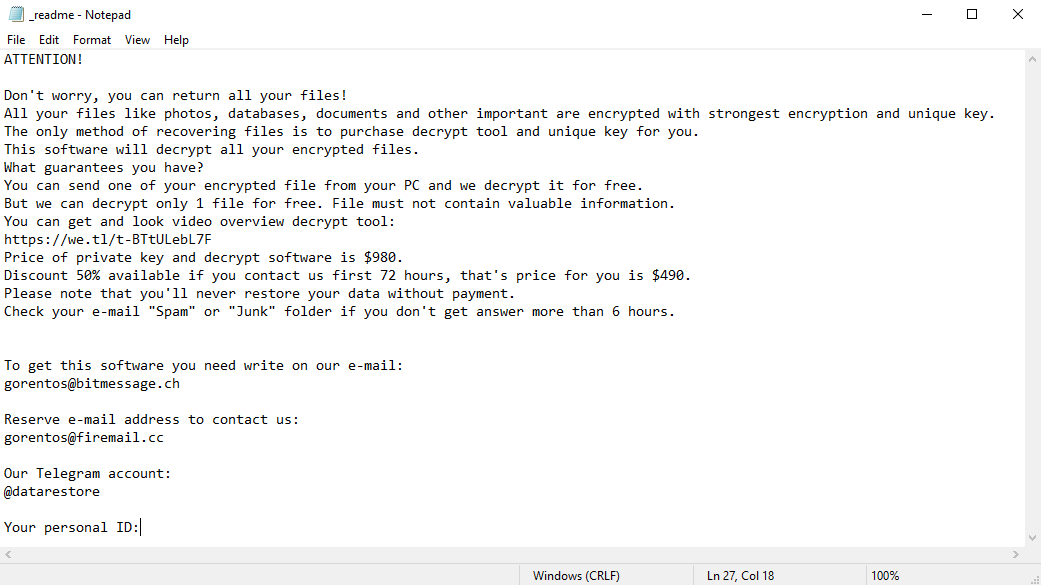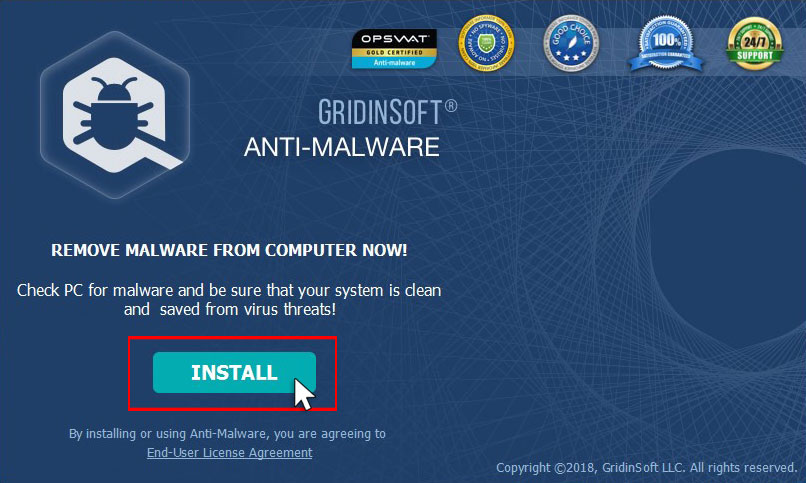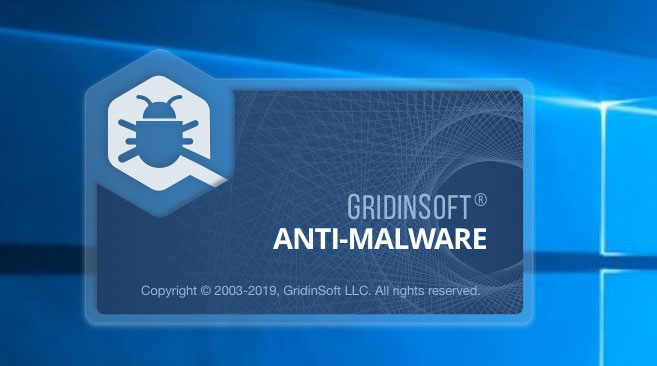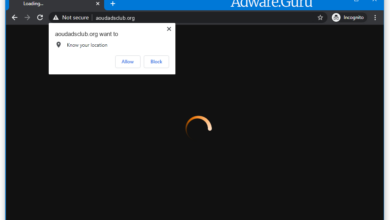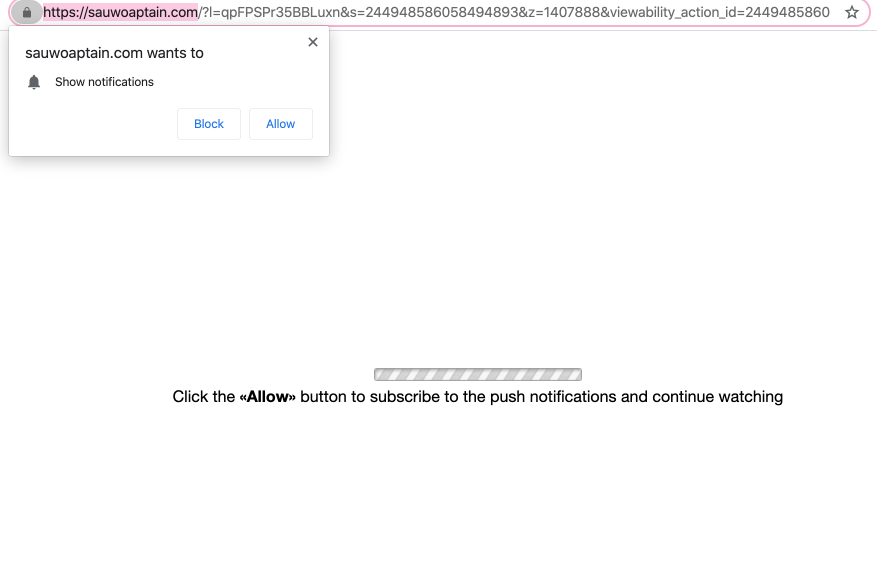Nakw Virus Removal Guide (+Decrypt .nakw files)
Nakw Virus – Details
Nakw is a harmful software application working as typical ransomware. Michael Gillespie, the widely known virus researcher, first discovered this new name in the DJVU ransomware family.
Nakw was created for the sole purpose to encrypt all popular file types. Rationally, as quickly as the encryption is successfully accomplished, the users are not able to get access to them. Nakw ransomware adds its own “.nakw” to all the encrypted files. For example, the file “price_list.xls”, as soon as modified by Nakw, will be entitled as “price_list.xls.nakw”. Once the file encryption is accomplished, Nakw puts its own special text file (_readme.txt) into all the folders that store the encrypted files.
The alert mentioned by _readme.txt asking for the random os very comparable to the notices provided by other ransomware hazards coming from the DJVU family. The warning essentially shows that the information has been encrypted and the only service to get access to it is to use a distinct standalone key. Regretfully, this statement is absolutely real.
The approach to secure the files used by Nakw is not totally looked into. However, there is no doubt that each computer system owner might be issued a special decryption key, which is absolutely unique. It is exceptionally hard to recuperate the data without the suitable key in place.
“Don’t worry, you can return all your files!”, from _readme.txt message:
One more peculiarity of the Nakw ransomware is that the users are unable to get access to the key. The decrypting key is hosted on a special server under the total control by the scoundrels who have actually released the Nakw virus into the world wide web. In order to obtain the key and bring back the essential data, the users are told to get in touch with the scams via e-mail or by telegram and to pay the ransom in the amount of $980.
The message likewise says that individuals must call the Nakw authors within 72 hours upon the minute of the data file encryption. The alert suggests that by doing so the people will obtain a 50% discount, for that reason, the ransom amount falls to $490.
Nakw modified your files, nevertheless, it might not be the only hazard on your computer. Plus, the ransomware may be hidden deep in the system. To spot and erase the risk entirely, we advise you to describe the help of GridinSoft Anti-Malware .
Download GridinSoft Anti-Malware
GridinSoft Anti-Malware Review, How to get free trial?, EULA, and Privacy Policy.
No matter what the quantity of the ransom is, we strongly recommend that you do not pay the ransom. There is no warranty that these online scoundrels will keep their promises, so they may not care at all what the victims feel about the file encryption, even when the quantity of the ransom is received into their accounts. For this reason, paying ransom often does not lead to a successful recovery. So, the users may simply lose their money for absolutely nothing.
Likewise, we urge you not to contact the scams as they advise. Do not move money into their wallets. There are no applications that could crack the Nakw ransomware or restore the data at no cost. Therefore, the only proper decision is to bring back the information from possible backups (if available).
Virus Summary
| Name | Nakw Ransomware |
| File Extension | nakw |
| Type | Ransomware |
| Family | DJVU |
| Short Description | The ransomware encrypts all the data stored on your system and requires a ransom to be paid on your part supposedly to recover your important files. |
| Symptoms | File encryption by the ransomware is performed by means of the AES-256 algorithm (CFB mode) encryption algorithm. Once the encryption is completed, the ransomware adds its special .nakw extension to all the files modified by it. |
| Distribution Method | Adware bundles and software cracks |
| Similar Infections | Derp, Coot, Nols |
| Removal Tool | GridinSoft Anti-Malware |
Do not forget that the Internet is now loaded with infections similar to the Nakw ransomware. For example, this particular threat is basically identical to Brusaf and other ransomware-type infections. These damaging utilities have been established in order to encrypt the crucial information and express the need for the users to pay the ransom. All these infections utilize the similar algorithm to create the particular key for successful data decryption.
Unless the Nakw ransomware is still under the development process or has actually got some hidden bugs, it is not possible to restore the information manually. Thus, the only working option to avoid the loss of your crucial information is to regularly preserve updated backups of all your important data.
Another important piece of advice is to keep the backups on unique storage not linked to your primary computer. For instance, you might keep it on the USB Flash Drive, or some external drive, or by using the cloud data storage services. Keeping the backups on your system drive is extremely dangerous, because the backup might likewise be secured by the Nakw ransomware.
Leaks for the Nakw ransomware attack.
Nakw uses many courses to penetrate the vulnerable computers. It is not specific what specific approach was utilized in your case, however, the invasion may take place via the following channels:
- bundling with third-party programs, mainly freeware;
- spam emails from the unknown senders;
- sites offering free hosting;
- P2P (peer-to-peer) torrent software.
There are times when the Nakw may camouflage itself as some genuine application, for example, through the misleading notifies requiring setup of some software upgrade. This is the most typical trick used by the frauds to inject the Nakw ransomware files into the system. This way users partly participate in its installation, without clearly comprehending the threat.
In addition, the scams may send out unsolicited spam e-mail with tricky signals motivating the people to open dubious accessories or click some download links, for example, those motivating individuals to open particular images, text files, tax files and other info.
No doubt, opening these files or clicking the destructive links might basically harm the system. Fake Adobe Flash Player upgrade notices may cause the Nakw ransomware infiltration. Similarly, downloading the broken software application might furthermore contain the ransomware installer. The last but not the least, setup of Nakw might happen through some Trojan horses that might be installed stealthily into the system and without the user’s direct consent or perhaps approval.
Avoiding the Nakw ransom virus attack.
Of course, there is no outright assurance that your computer will be always free of any malware attacks, however, we would like to share some beneficial suggestions with you to make it more secure. Make certain to pay extremely very close attention while searching the web and specifically while getting cost-free programs. Do not open any suspicious email accessories, specifically if the sender is not understood to you.
Do not forget that certain freeware installer may also contain some other additional apps in the package. These additional applications might be very damaging. It is of utmost importance to keep your anti-virus software and your os in basic to be constantly correctly updated.
It is quite logical that downloading cracked apps is prohibited, however, furthermore, such unauthorized software application usage might likewise bring severe damage to your computer. Hence, do not download any cracked programs. Plus, the truth that your current anti-virus did not protect the system from the Nakw ransomware is an excellent reason for you to reconsider your choices and change to another program that can render the protecting functions on a far better level.
Below please find the quotation from the Nakw text file:
ATTENTION! Don't worry, you can return all your files! All your files like photos, databases, documents and other important are encrypted with strongest encryption and unique key. The only method of recovering files is to purchase decrypt tool and unique key for you. This software will decrypt all your encrypted files. What guarantees you have? You can send one of your encrypted file from your PC and we decrypt it for free. But we can decrypt only 1 file for free. File must not contain valuable information. You can get and look video overview decrypt tool: https://we.tl/t-2P5WrE5b9f Price of private key and decrypt software is $980. Discount 50% available if you contact us first 72 hours, that's price for you is $490. Please note that you'll never restore your data without payment. Check your e-mail "Spam" or "Junk" folder if you don't get answer more than 6 hours. To get this software you need write on our e-mail: [email protected] Reserve e-mail address to contact us: [email protected] Our Telegram account: @datarestore
Screenshot of files with “.nakw” extension added by the ransomware:”
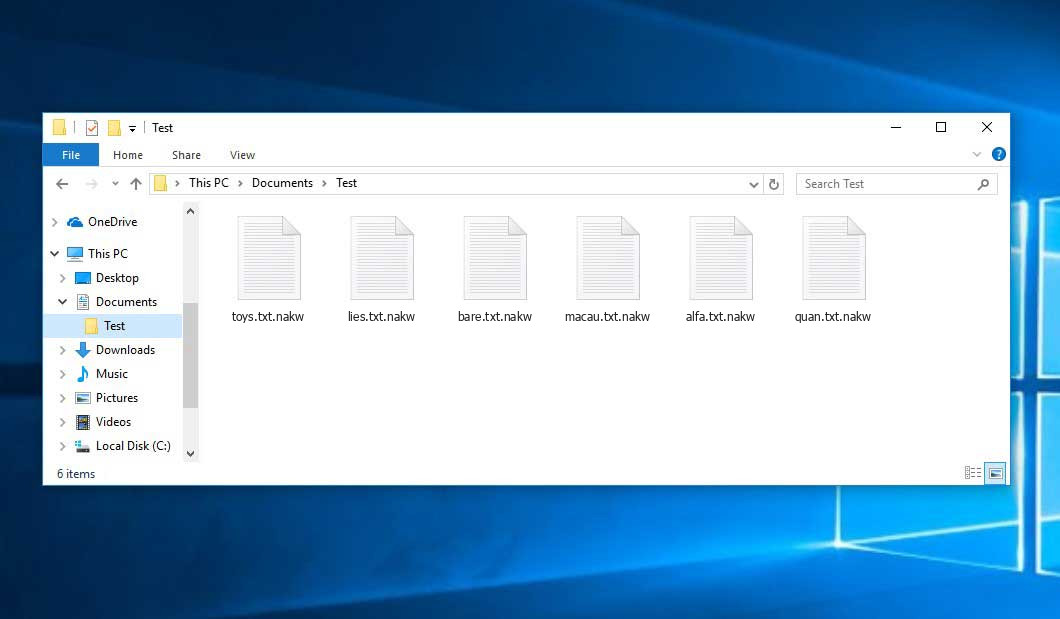
Use GridinSoft Anti-Malware to remove Nakw ransomware from your computer
1.Download GridinSoft Anti-Malware.
You can get GridinSoft Anti-Malware by clicking the button below:
2. Double-click on the setup file.
When setup file has finished downloading, double-click on the setup-antimalware-ag.exe file to install GridinSoft Anti-Malware on your computer.
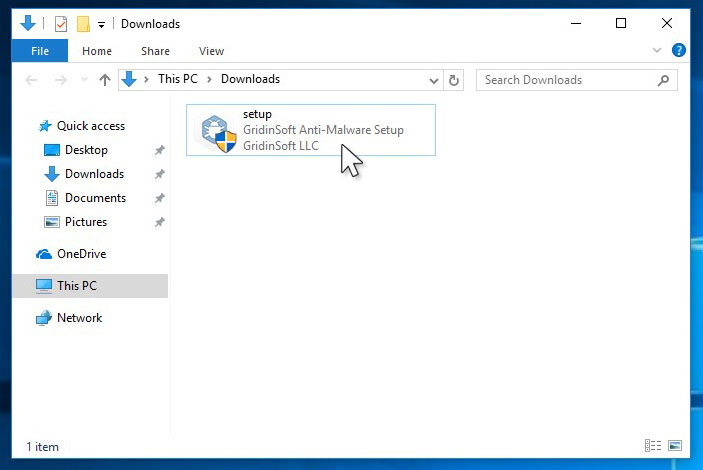
An User Account Control asking you about to allow GridinSoft Anti-Malware to make changes to your device. So, you should click “Yes” to continue with the installation.
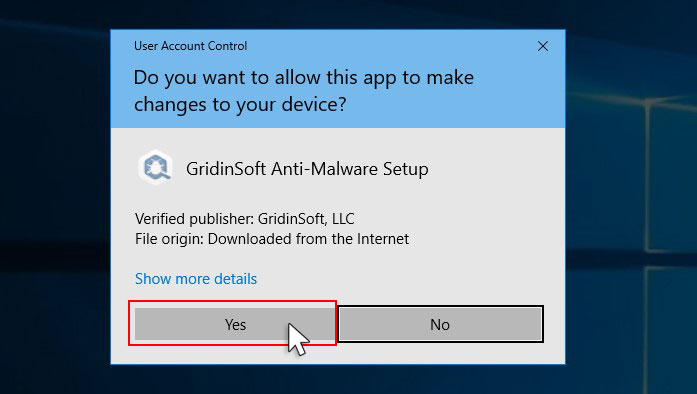
3. Press Install button for run GridinSoft Anti-Malware.
3.Once installed, GridinSoft Anti-Malware will automatically run.
4. Wait for the GridinSoft Anti-Malware scan to complete.
GridinSoft Anti-Malware will automatically start scanning your computer for Win Speedup 2018 and other malicious programs. This process can take a 20-30 minutes, so we suggest you periodically check on the status of the scan process.
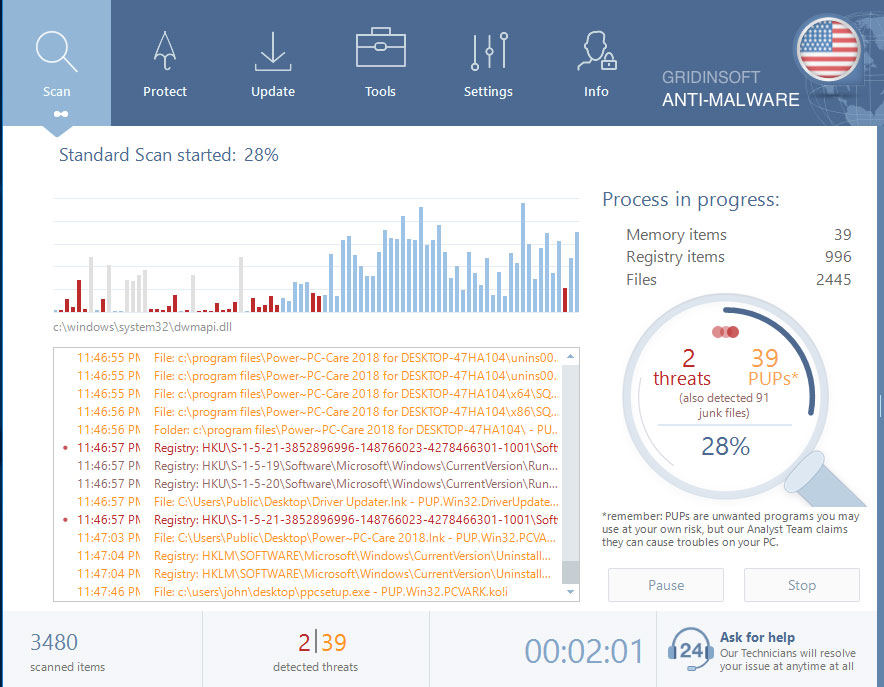
5. Click on “Clean Now”.
When the scan has completed, you will see the list of infections that GridinSoft Anti-Malware has detected. To remove them click on the “Clean Now” button in right corner.
